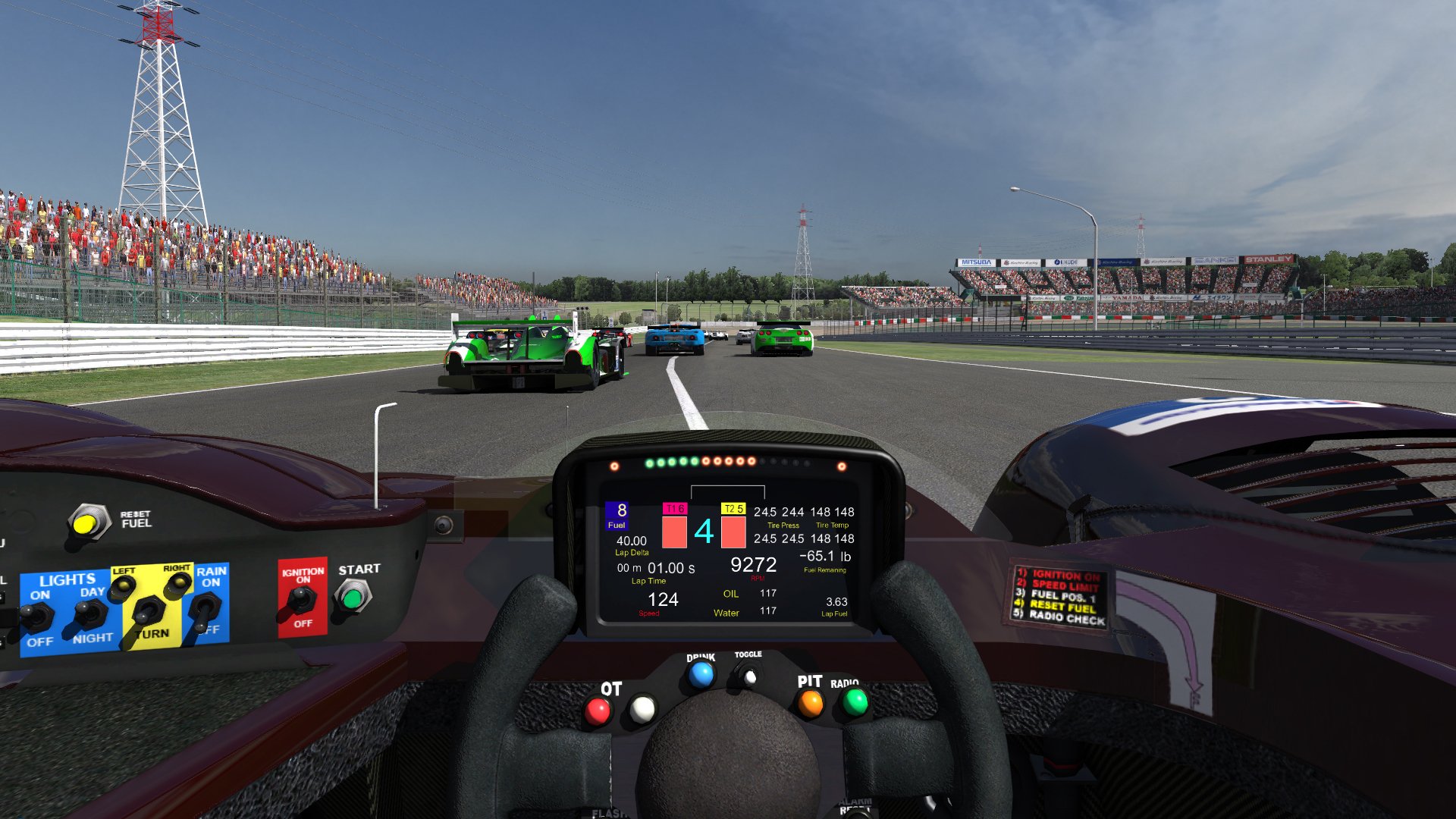Sim Racing: A Brief History
Sim racing is a form of motorsport that allows players to experience the thrill of driving in a virtual environment. With the advancement of technology, sim racing has become a popular pastime for racing enthusiasts, gamers and racing drivers.
The origin of sim racing can be traced back to the 1970s when arcade-style racing games first emerged. These early games featured simple graphics and gameplay that was limited to a few buttons, but they quickly became popular and inspired a generation of gamers. The first car racing video game is widely considered to be " Gran Trak 10" developed by Atari and released in 1974. This arcade game allowed players to race a simple car along a simple track, and it was one of the first games to feature a steering wheel as the controller. The game was simple and basic compared to later racing games, but it laid the foundation for the development of the car racing game genre.
In the 1980s and 1990s, computer-based sim racing games started to emerge. The first popular sim racing game, Grand Prix Circuit, was released in 1992 and allowed players to experience the thrill of Formula One racing. Other popular sim racing games of the time included IndyCar Racing, Nascar Racing, and Formula One Grand Prix. These games paved the way for the sim racing genre and set the foundation for future advancements.
Sega Rally is considered to be one of the earliest and most influential arcade-style rally racing games. It was first released in 1995 and was well received for its realistic handling physics and responsive controls. The game's popularity inspired other game developers to create similar games, leading to the growth of the sim racing genre. While Sega Rally did not directly create the sim racing genre, it definitely had a significant impact on the development of the genre and all gamers who sat in and drove.
Gran Turismo, released in 1997, has had a profound impact on the gaming industry and is widely considered one of the most influential racing simulation games of all time. The game was the first of its kind to offer realistic and immersive racing experiences, with accurate vehicle physics, detailed graphics, and a wide range of licensed vehicles and tracks. The success of Gran Turismo led to the creation of numerous sequels and spin-off games, solidifying its position as one of the most popular racing franchises in the gaming world. Gran Turismo's impact on the industry extends far beyond just racing simulations, as it has influenced many other games in various genres, inspiring the development of more immersive and realistic gaming experiences. To this day, Gran Turismo continues to be a major player in the racing simulation genre and has cemented its place in the gaming industry as a true icon.
With the advent of the internet, sim racing communities started to form. Players could now compete against each other online and share their experiences. In the early 2000s, sim racing games started to become more sophisticated, with realistic graphics, advanced physics engines, and improved controls. The release of iRacing in 2008 marked a new era in sim racing as it became one of the first racing games to offer a realistic racing experience.
Assetto Corsa, released in 2014, has had a significant impact on the world of sim racing. The game boasts highly-detailed and accurate vehicle physics, tracks, and graphics, offering players a truly immersive racing experience.. The game has spawned a large online community, with players competing in various leagues and competitions. Assetto Corsa's impact on the sim racing world cannot be overstated and it continues to be one of the leading racing simulations to this day.
Today, sim racing is a thriving industry with millions of players worldwide. From professional racing drivers to casual gamers, sim racing offers a unique experience for everyone. With the introduction of virtual reality technology, sim racing has become even more immersive and now with motion rigs even more realistic. With advancements in technology in pedals, steering wheels, direct drives and hand controls, the future of sim racing looks bright and we will see even more exciting developments in the years to come.
Sim racing has come a long way since its humble beginnings in the 1970s. From arcade-style games to sophisticated virtual racing experiences, sim racing has evolved into a popular form of motorsport that appeals to people of all ages and backgrounds. Whether you're a seasoned racer or just a casual gamer, sim racing is a fun and exciting way to experience the thrill of the race.


























